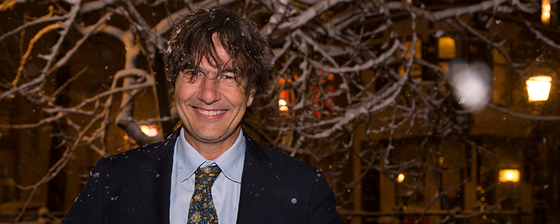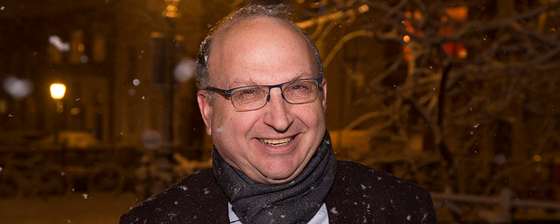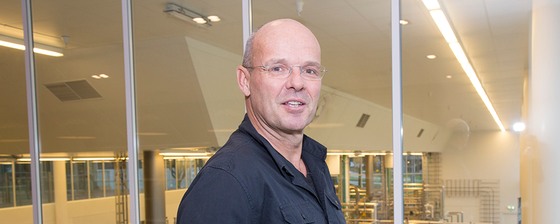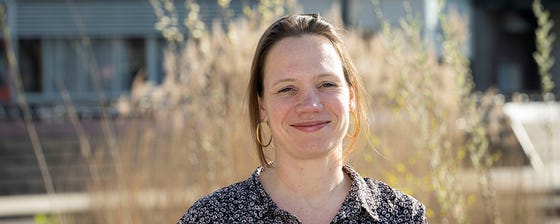Collaborations
Collaborators talk about experiences on working together on a better understanding of translational medicine.
Salvatore Albani uitklapper, klik om te openen
Director of Translational Immunology Institute, Professor, Duke-NUS Graduate Medical School Singapore, Co-founder of the Eureka Institute for Translational Medicine

“The main problem is an increased gap between the amount of data that we generate in research and the ability to apply it into clinical practice, in a meaningful and impactful way.”
With our broad scope, we try to cover the whole gradient of Translational Medicine, ranging from molecular biology to new products. This is very rare to find. The course offered by Eureka differs from most programs because of the international setting, and the way it is adapted to promote critical thinking and create awareness.” Most of all, Salvatore Albani wants to emphasize that Eureka is more than a program. “It establishes collaborations, it creates an international network. One could talk about the individual achievements, but Eureka is all about a group quest. In my opinion, the main problem in the medical world is an increased gap between the amount of data that we generate in research and the ability to apply it into clinical practice, in a meaningful and impactful way,” Salvatore explains. That is the reason why Salvatore and his colleagues founded the Eureka Institute: “to contribute to the growth of Translational Medicine in a way that is directly impactful to patients.”
Norman Rosenblum uitklapper, klik om te openen
Staff Nephrologist at The Hospital for Sick Children, and Senior Scientist Developmental & Stem Cell Biology, University of Toronto

"At the UMC Utrecht, people talk about how the translational pathway works and if we need to challenge that paradigm. That is part of the uniqueness of the UMC Utrecht.”
Asked about the relevance of Translational Medicine, Norman Rosenblum answers, ”Medicine exists today at a time where there is potential to bring a variety of discoveries to the clinical context and to wider populations. Populations of not necessarily sick people, but even healthy people for whom we seek to optimize health. There is tremendous potential to do this because of real revolutions in the biological sciences over the last 30 years, as well as in information technology, population health sciences, and artificial intelligence. The old way of thinking was about bringing discoveries to the market, but we now focus on technology and patient interfaces, information, and healthcare models. The patient has become a real partner, whereas before the patient was a target.”
“The University of Toronto plays a big role in the field of Translational Medicine as a top-20 university in Life Sciences and top-3 university in pediatrics,” Norman explains. “But the UMC Utrecht does not just talk about Translational Medicine; it is trying to promote it as a way for people to engage in their science and in the application of their science. They are asking about patient’s priorities, asking about waste in science. From the Dean down, they are willing to do it.” “At the UMC Utrecht, people talk about how the translational pathway works and if we need to challenge that paradigm. That is part of the uniqueness of the UMC Utrecht."
Johan Garssen uitklapper, klik om te openen
Director Platform Immunology at Nutricia Research, and Professor of Immunopharmacology at Utrecht University

“Academia and industry need to work together to bring new concepts to the market.”
“At Nutricia, the majority of my work focuses on translatability, to develop things that can directly help patients. It is always in the back of my mind: can I translate this into something that can be used by patients 10 years from now? I think that both academia and companies like Nutricia have changed over the last years. Let’s be honest, ten years ago we would just look at your CV and ask how many publications you have as a scientist and what the impact factor is. This is still important, but now there is another aspect: translating science into something that can help patients and prevent diseases.”
“I am in a unique position since 2005, having a parttime position with both Nutricia and the Faculty of Science of Utrecht University,“ says Johan when he talks about his two jobs. “I do fundamental work on immune regulation at the university which is not directly translatable, but I combine it with experiments that will hopefully lead to new drugs, medical food, or food for pregnant women or babies.” He concludes, “You need academia for the basic knowledge, and you need industry to translate the scientific concept into the actual drug or nutritional product or vaccine. Academia and industry need to work together to bring new concepts to the market.”
Sanne ter Meulen - de Jong uitklapper, klik om te openen
Assistant professor in biomedical education at University Medical Center Utrecht

Sanne ter Meulen obtained her PhD at the department Medical Physiology of the UMC Utrecht in 2015, concerning the detection of cardiac fibrosis by means of circulating biomarkers and imaging techniques.
Currently, Sanne is affiliated to the department Medical Physiology and the Educational Center of the UMC Utrecht. In her role as educational innovator and researcher, she focuses on translational research in biomedical education, specifically within the cardiovascular research field. She coordinates the master profile Translational Life Sciences and the master programme Cardiovascular Health & Disease. Translational medicine and the skills required for a translational researcher play a pivotal role in these educational modules. Alongside her educational activities, she is heavily involved in research in the field of translational research and education.
The educational leadership combined with her innovation & research endeavours enable her to develop, implement, and validate educational activities to train our future translational researchers.
